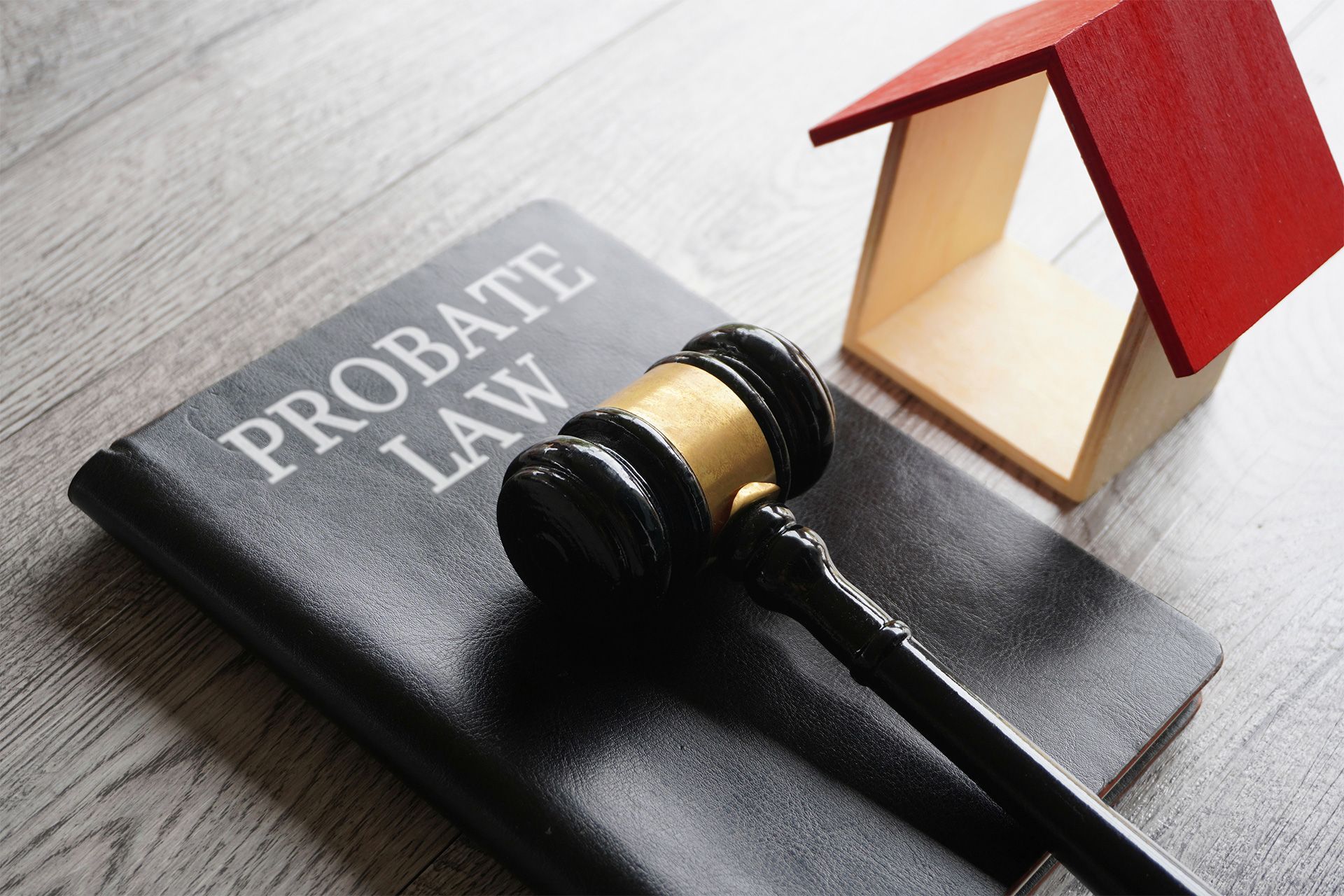Who Owns the Property in a Revocable Trust in Florida?
A revocable trust is one of the most common tools used in Florida estate planning. It helps individuals manage their property during their lifetime and ensures a smooth transfer of assets after death—without the delays and costs of probate.
But one question often confuses: Who actually owns the property placed in a revocable trust in Florida?
Let’s break this down in simple terms so you can understand how property ownership works, who controls the trust, and what rights everyone involved has.
What Is a Revocable Trust?
A revocable trust, sometimes called a “living revocable trust,” is a legal document that lets you (the grantor or settlor) transfer ownership of your property, like your home, bank accounts, or investments, into the trust.
The keyword here is “revocable.” It means you can:
- Change the terms of the trust at any time,
- Add or remove assets, and
- Cancel (revoke) the trust completely if you wish.
In a typical setup, the grantor also serves as the trustee during their lifetime. This allows them to keep full control over the property in the trust.
For example, if John Smith creates the “John Smith Revocable Trust,” he can name himself as trustee. He can still live in his home, sell his car, or withdraw money from his bank account just as before.
Who Owns the Property in a Revocable Trust in Florida?
Here’s where it gets interesting. When property is transferred into a revocable trust, legal ownership changes, but practical control usually does not.
1. The Trustee Holds Legal Title
In Florida, the trustee is the person who legally owns and manages the property in the trust. This means that the deed, for example, will list the trustee as the owner, not the grantor personally.
Example:
If Jane Doe transfers her Palm Beach home into her revocable trust, the property title might read:
“Jane Doe, Trustee of the Jane Doe Revocable Trust dated November 11, 2025.”
That’s the legal way of saying that the trust (through the trustee) owns the property.
2. The Grantor Retains Beneficial Ownership
Even though the trustee technically holds the title, the grantor (you) still owns the property for most practical and tax purposes as long as the trust is revocable.
Because you can revoke or change the trust anytime, the IRS and Florida law treat you as if you still personally own the assets.
That means:
- You continue to pay property taxes under your name.
- You can still qualify for Florida’s homestead exemption.
- You can sell, refinance, or use the property as you wish.
3. Beneficiaries Have Future Interest
The beneficiaries named to receive the property after your death don’t own anything yet. Their ownership only begins when the grantor dies and the trust becomes irrevocable (meaning it can’t be changed). Until then, the beneficiaries have no control or legal right to the property.
Does a Trustee in Florida Own the Property?
This is a common question: “Does a trustee in Florida own the property?”
The answer is both yes and no, depending on what kind of ownership we’re talking about.
- Yes,
the trustee owns the property legally, and the title is in their name as trustee.
- No,
the trustee doesn’t own it personally; they can’t use it for themselves or mix it with their own property.
Think of it like a manager role. The trustee is responsible for managing and protecting the property, following the trust’s rules, and acting in the best interest of the grantor or beneficiaries.
Why Put Property in a Revocable Trust in Florida?
There are several reasons why people in Florida choose to place their property in a revocable trust:
1. Avoid Probate
One of the biggest benefits is avoiding probate, the court process used to transfer assets after death. Probate can be time-consuming and expensive, but with a trust, your property passes directly to your beneficiaries.
2. Maintain Privacy
Unlike a will, which becomes public record during probate, a trust remains private. This means your estate details stay confidential.
3. Ensure Smooth Management During Incapacity
If you become sick or unable to manage your affairs, your successor trustee can step in and handle your property without needing a court-appointed guardian.
4. Flexibility and Control
Because it’s revocable, you can change the trust’s terms anytime—add assets, change beneficiaries, or even revoke it entirely.
How Property Is Transferred Into a Revocable Trust
Transferring property into a trust involves retitling the asset in the name of the trust. For real estate, this means:
- Preparing a deed transferring the property from your name to your name as trustee.
- Recording the deed with the county clerk in the property’s location.
- Updating your insurance and property tax records to reflect the trust ownership.
You’ll still have all the same rights to use and enjoy your property as before—just under the name of your trust.
What Happens to Property in a Revocable Trust After Death?
When the grantor passes away, the revocable trust becomes irrevocable. This means no one can change its terms anymore.
At that point:
- The successor trustee takes over management.
- The property is distributed to the beneficiaries according to the trust instructions.
- No probate court process is needed.
This makes the transfer faster, simpler, and more private for your family.
Common Misconceptions About Revocable Trust Ownership
“I lose control of my property once it’s in the trust.”
Truth: You keep full control during your lifetime. You can buy, sell, or remove property anytime.
“The trustee owns everything.”
Truth: The trustee holds the title, but the property is managed for the benefit of the grantor and later for the beneficiaries.
“My trust protects my assets from creditors.”
Truth: A revocable trust does not provide asset protection. Because you still control it, creditors can still reach your assets.
Florida-Specific Considerations for Trust Ownership
Florida has some special rules regarding trusts and property ownership:
- Homestead Exemption: Even if your home is in a revocable trust, you can still claim the Florida homestead exemption as long as you are the primary resident and the trust is properly drafted.
- Title Insurance: When transferring property to a trust, it’s wise to contact your title insurance company to ensure continuous coverage.
- Trustee Duties: Florida law requires trustees to act in good faith, keep records, and follow the terms of the trust carefully.
These laws ensure your trust operates smoothly and protects your intentions.
Final Thoughts
In a revocable trust in Florida, the trustee holds the legal title, but the grantor keeps full control and is considered the true owner for tax and personal use. After the grantor’s death, the successor trustee transfers the property to the beneficiaries smoothly avoiding probate and ensuring privacy.
Creating a properly drafted revocable trust is one of the best ways to protect your assets and your loved ones’ future.
At Doane and Doane, our experienced Palm Beach trust attorneys are dedicated to helping you create personalized, legally sound estate plans that provide peace of mind today and lasting protection for tomorrow.
FAQs About Revocable Trust Property Ownership in Florida
Can I sell property that’s in my revocable trust?
Yes. Since the trust is revocable and you are likely the trustee, you can sell or refinance property anytime without needing court approval.
Can a trust own a home in Florida?
Yes. A revocable trust can hold title to your Florida home, and you can still live in it and claim your homestead exemption.
Do I pay taxes differently for property in a trust?
No. Because the trust is revocable, your property is still taxed under your Social Security number, and you file taxes as usual.
Who gets the property after I die?
Your named beneficiaries will receive the property according to the terms of your trust—without going through probate.
Does a trustee in Florida own the property personally?
No. The trustee only holds the title as part of their role. They must manage the property according to the trust’s terms and cannot use it for personal benefit.
Disclaimer: The information on this website and blog is for general informational purposes only and is not professional advice. We make no guarantees of accuracy or completeness. We disclaim all liability for errors, omissions, or reliance on this content. Always consult a qualified professional for specific guidance.
RECENT POSTS






